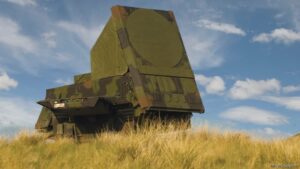Raytheon gets $1.2 billion deal from Germany for Patriot missile defense system
Under a new $1.2 billion contract awarded this week, Raytheon’s Arizona unit will provide the German military with a fresh supply of Patriot air and missile defense equipment.
Raytheon, a division of Virginia-based RTX Corp. (NYSE: RTX), whose missile manufacturing operations are based in Tucson, said the contract will supply the most current Patriot Configuration 3+ radars, launchers and command-and-control stations, along with spare parts and support.
The Patriot system is capable of defeating advanced long-range cruise missiles, tactical ballistic missiles and various air-breathing weapons, which are designed to reach hypersonic speeds. Patriot is the only such system that is combat-proven, Raytheon said.
“This contract reflects the global emphasis on advanced air and missile defense capabilities and the steadfast confidence in Patriot,” said Tom Laliberty, president of Land and Air Defense Systems at Raytheon. “With this expansion, Germany will not only modernize its own significant air defense but enhance its interoperability with allies and further strengthen a core NATO mission.”
The Global Patriot air defense system is used by 19 countries, with more than 240 fire units delivered around the world, Raytheon said. It involves radars and multiple kinds of intercepters against threats. The system has intercepted more than 150 ballistic missiles in combat operations around the world, the company said, with most of those using Raytheon’s Guidance Enhanced Missile surface-to-air weapons.
Raytheon 360-degree radar passes test
In separate news, Raytheon also announced this week that its Lower Tier Air and Missile Defense Sensor, or LTAMDS, completed its fourth successful live-fire demonstration.
The system is a 360-degree air and missile defense radar to be used by the U.S. Army that is intended to provide greater capabilities than current options against manned and unmanned aircraft, cruise missiles, ballistic missiles and hypersonic weapons.
The latest test took place at the White Sands Missile Range in New Mexico, where the system acquired and tracked a high-altitude, high-speed cruise missile surrogate, passed the data to the Integrated Battle Command System, or IBCS, and guided a PAC-3 Missile Segment Enhancement missile to the target.
“The advanced capabilities of LTAMDS outpace the global threats of today and tomorrow and allied forces are watching its progress intently,” Laliberty said in a statement. “The solid performance of the radar against these complex and realistic threats validates the radar’s design and demonstrates how this capability will transform the air and missile defense mission.”
With previous LTAMDS program testing taking place in October, further tests are expected this year before “a 360-degree, full sector capability” fielding within the year.
The tests are part of a 2019 contract project that includes six radars.
In another separate deal, a joint venture between Raytheon and Lockheed Martin was awarded a $7,859,917 modification to a 2023 U.S. Army contract for the Javelin Weapon System. The modification is for repair and maintenance support, with work being done in Tucson and expected to be completed by August 30.

